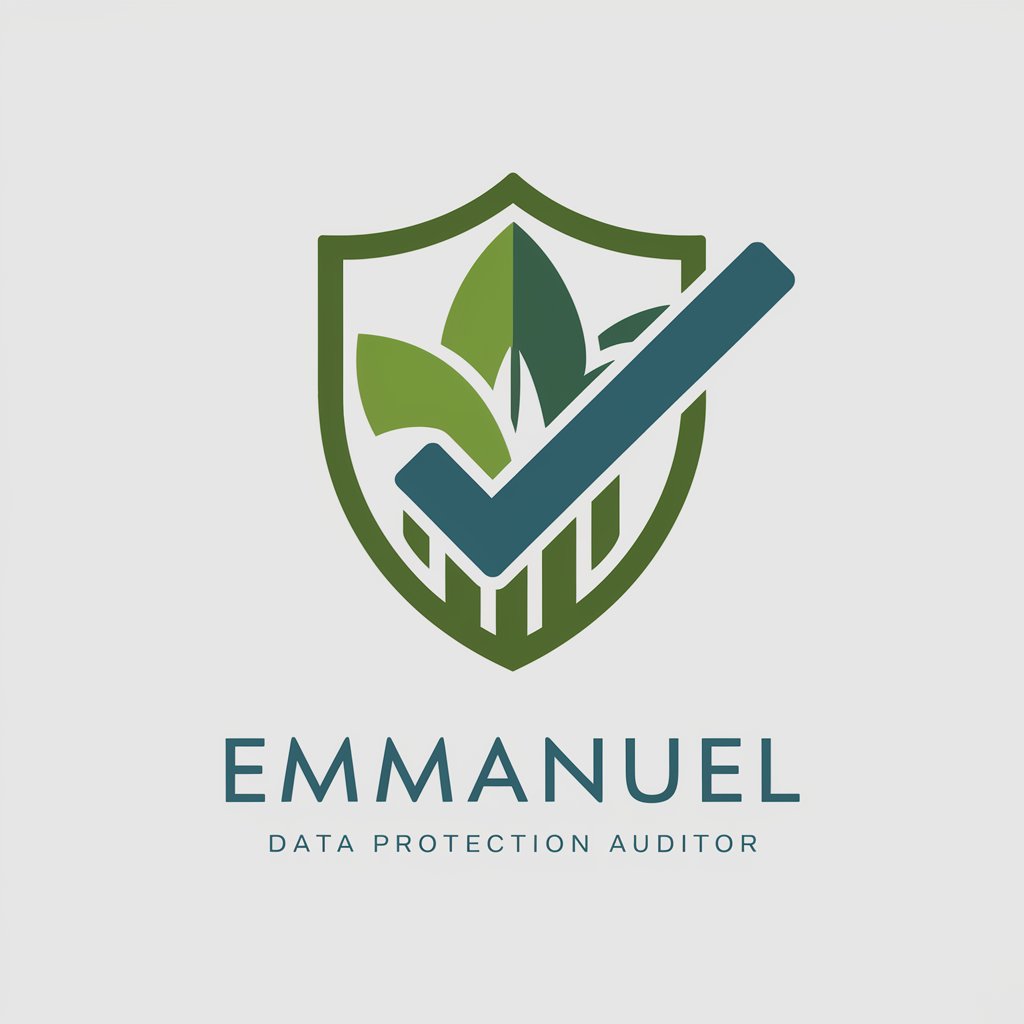
👑 Data Privacy for Agricultural & Farming 👑 - GDPR Compliance in Farming

Hello! Which country is your message related to?
Secure, GDPR-compliant agricultural data management.
How can I ensure GDPR compliance in my agricultural data management?
What are the key data privacy regulations for the farming sector in [country]?
Can you explain the data retention requirements under the CCPA?
What are the steps for conducting a Data Protection Impact Assessment (DPIA)?
Get Embed Code
Understanding Data Privacy for Agricultural and Farming
Data Privacy for Agricultural and Farming is designed to address the unique challenges and needs of data protection within the agricultural sector. This sector increasingly relies on digital and data-driven technologies, such as precision farming, IoT devices for soil and crop monitoring, and big data analytics for yield prediction and resource management. The basic functions and design purpose revolve around providing expert advice, compliance strategies, and interpretations of data protection laws tailored to the agricultural and farming industry. For example, a scenario illustrating this aspect could involve a farming cooperative seeking to implement a new data-driven irrigation system. Our service would guide them through the necessary compliance with global data privacy regulations like GDPR, ensuring the protection of data related to soil health and crop yields while optimizing water usage. Powered by ChatGPT-4o。

Core Functions of Data Privacy for Agricultural and Farming
Regulatory Compliance Advice
Example
Interpreting GDPR requirements for a farm using drones to monitor crop health.
Scenario
A farm uses drones equipped with cameras and sensors to collect data on crop health. Our service helps the farm ensure that the collection, storage, and processing of this data comply with GDPR, including obtaining necessary consents and implementing data minimization practices.
Data Protection Impact Assessments (DPIA)
Example
Conducting DPIA for a new agricultural data analytics platform.
Scenario
Before launching a new data analytics platform that predicts crop yields based on environmental data, we assist in conducting a DPIA to identify and mitigate data privacy risks, ensuring the platform's design complies with regulatory requirements.
Consent Management Solutions
Example
Implementing a consent management framework for a farm's customer data.
Scenario
For a farm selling produce directly to consumers online, we provide solutions for managing consumer consents regarding data collection and processing, ensuring transparency and compliance with data protection laws.
Who Benefits from Data Privacy for Agricultural and Farming Services
Farm Owners and Operators
Individuals and entities that own or operate farms can benefit from understanding and implementing data privacy measures, ensuring that their use of technology for crop monitoring, yield optimization, and farm management is compliant with data protection regulations.
Agri-tech Companies
Companies developing technologies for the agricultural sector, such as IoT devices, precision farming equipment, and farm management software, require guidance on embedding data privacy by design and by default into their products and services.
Agricultural Researchers and Academics
Researchers and academics studying agricultural sciences and technologies benefit from our services by ensuring their research methodologies and data collection practices adhere to the highest standards of data privacy and protection.

Using Data Privacy for Agricultural & Farming
1
Begin by accessing a platform offering a trial without the need for login or subscription, such as visiting a dedicated site.
2
Identify the specific data privacy concerns related to your agricultural operations, including crop yield data, soil health information, and farm management practices.
3
Leverage the tool to implement GDPR-compliant data protection measures, focusing on consent management, data minimization, and secure data processing.
4
Utilize the platform's resources to conduct Data Protection Impact Assessments (DPIAs) for new and existing farming technologies.
5
Regularly review and update your data privacy practices in accordance with the latest agricultural regulations and technological advancements.
Try other advanced and practical GPTs
Thumbnail Wizard
Craft Eye-Catching Thumbnails with AI

Scholarly Scribe
Elevate Your Research with AI

CareerNav
Empowering Your Career Journey with AI

D
AI-powered Urban Drone Management

Cardio Coach
AI-powered Cardio Fitness for Smokers

Local SEO Advisor
Optimize Local Presence with AI

Dubai Guide AI-Enhanced
Explore Dubai with AI-Powered Precision

Marketing Video Content
Empower Your Stories with AI

Engaging Video Script
Craft compelling video scripts with AI

Gansu Culinary Guru
Unleash Gansu's flavors with AI

RareB-Day GPT by BirthdayEWishes.com
Celebrating Each Birthday with AI-Powered Personalization

Orator Prodigy Plus
Elevate Your Oratory with AI

Q&A on Data Privacy for Agricultural & Farming
What is GDPR and how does it affect agricultural data?
The General Data Protection Regulation (GDPR) is a regulatory framework that sets guidelines for the collection and processing of personal information within the EU. For the agricultural sector, this means ensuring that data collected on farm operations, employee information, and supply chains is handled in a way that complies with GDPR requirements, including obtaining consent and ensuring data security.
How can farmers ensure compliance with data privacy laws?
Farmers can ensure compliance by implementing strong data governance policies, conducting regular data audits, securing data with encryption, obtaining clear consent for data collection, and providing transparency in data processing activities.
What are the benefits of data privacy compliance in farming?
Compliance not only avoids legal penalties but also enhances trust with customers and partners, secures sensitive data against breaches, and enables safer, more efficient farm management through data-driven decisions.
Can agricultural technology (AgTech) be GDPR compliant?
Yes, AgTech can be designed to be GDPR compliant by incorporating data protection by design and default, ensuring data collected is necessary, securely stored, and processed under lawful bases, and that users' rights are respected.
What role does consent management play in agricultural data collection?
Consent management is crucial for legally collecting and processing personal data in the agricultural sector. It ensures that individuals are informed about what data is collected, for what purpose, and gives them control over their own data, in line with data privacy laws.





